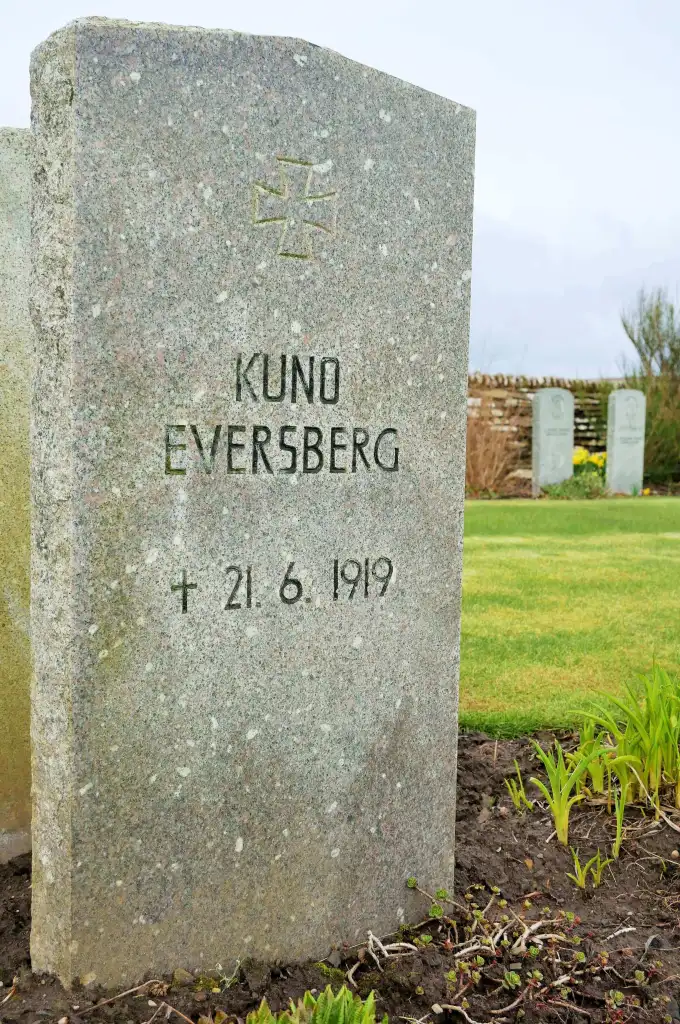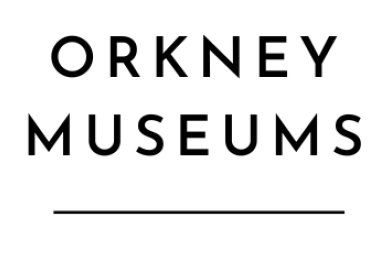The Scuttling of the German Fleet: 2019 Summer Exhibition at the Orkney Museum. Panel 5. The Murder of Kuno Eversberg



The Murder of Kuno Eversberg
At five minutes past midnight on the 24 June 1919 two German Prisoners of War were being escorted to the toilet onboard HMS Resolution by two armed guards. A shot rang out and one of the Germans, 19 year old Kuno Eversberg, moaned and stumbled, clutching his side. The guards’ rifles were checked and found not to have been fired. Able Seaman William Berry arrived quickly on the scene. One of the guards and the other prisoner helped Eversberg to the sick bay where he was examined before being transferred to the hospital ship HMS Agadir, where Surgeon Commander Frank Bolton operated on the perforated bowels. The doctor didn’t hold out much hope for Eversberg, and he died of Peritonitis (blood poisoning) at 9.40 a.m. on the 29 June. It was decided to offer his family £300 in compensation for the murder.


Captain Alington of HMS Resolution informed Rear Admiral Sir Sydney Fremantle of the shooting later the same day and was ordered to investigate. A search had found the murder weapon, a rifle, hidden next to B Turret, the upper of the two front gun turrets. Alington sent a telegram to Fremantle on the 20 July saying, “I regret it has been impossible to charge any particular person on board.” The Commander-in-Chief of the Atlantic and Home Fleet, Admiral Sir Charles Madden, was only informed of the murder on the 25 July – over a month after the shooting. He was furious that he had not been informed and that a court of enquiry had not been carried out. Also, Eversberg was listed among those killed on the 21 June in a document dated 29 June (the day that he died), which was sent to the German government in response to their request for the names of the dead. A court of enquiry was held but found out nothing. Among those questioned was William Berry, who said he knew nothing about the killing. A second court of enquiry was held, but this time it was more thorough. Berry had been unofficially told that he was the prime suspect and named Ordinary Seaman James Wooley from Blackburn, Lancashire, as the murderer. He was able to name witnesses who could verify part of his story.


HMS Resolution had sailed for Invergordon a few days after the shooting, and the crew were given leave while it was refitted. James Wooley didn’t return and was reported as a deserter on the 30th July. He was arrested on 18th September and received 60 days detention. While in the naval prison he was informed that he was to be charged with Eversberg’s murder. A police sergeant from Orkney escorted him to Kirkwall where the charge of murder was brought against him. Wooley refused to make a statement. He stood trial at the Edinburgh High Court on the 9th February 1920. Berry said that on the 23rd June Wooley was drunk, having got German cognac from the crew of a drifter, and was saying that he was going to kill a German for revenge, as he’d lost two brothers in the war. Berry saw him later lying by B Turret with a rifle and again repeated that he “was going to get his own back.” Berry told him, “Carry on, but don’t mention my name.” The judge said that in his opinion Berry should be held as an accomplice. Another witness, Able Seaman John Copeland, had heard Wooley say he wanted to kill a German and had found him with a rifle and had taken the cartridge out of the chamber before Wooley turned violent and threatened him. Copeland hadn’t checked to see if Wooley had any other bullets on him, and he didn’t report it.

Professor George Robertson MD said that having examined Wooley he found a slightly flattened spot on his skull, which was the result of being struck on the head by a stone when he was a child. He said that this old injury could cause problems in his mental state, aggravated by alcohol. The verdict was Not Proven, a Scottish law where there is insufficient evidence or doubt to convict a person. Wooley wept as his sailor friends cheered. He was discharged from the Royal Navy. A recommendation to discharge Berry and Copeland for their “low moral character” was later turned down. Whether Wooley was the real murderer remains a mystery – or was it Berry? He must certainly be considered an accomplice, as the judge observed during the trial. The medical evidence of his mental state might have helped the jury reach their verdict. Maybe it was just too close to the end of the war and a German nationals’ murder would not arouse any sympathy. Whoever the murderer was, Kuno Eversberg did not receive justice.




To make a donation to any of the museums please follow the link and support us. Thank you.
